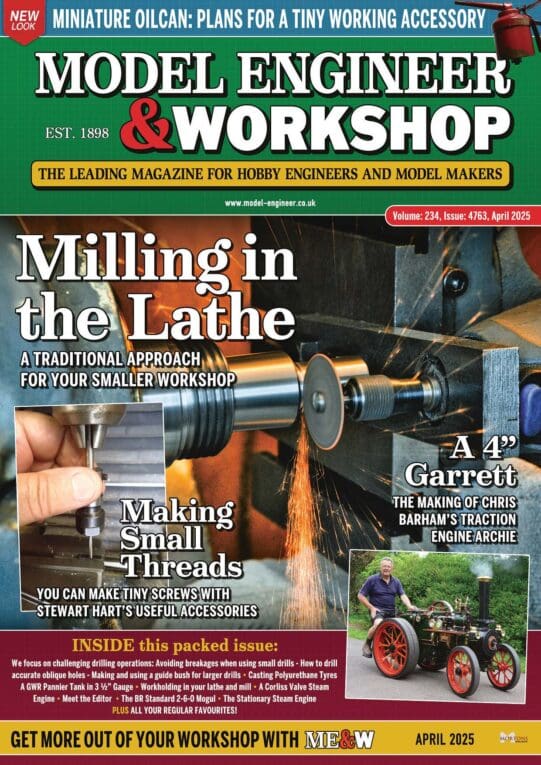Is the hobby dying? I think this will depend on two main factors.
The first is that as people become older, and realise that “for the want of a nail, the shoe was lost” – but unfortunately they can no longer obtain the nail, unless they make it themselves! In other words, as people come to reject the idea of throwing away perfectly good “stuff” because the spares are not available, so they will turn to repairing it themselves. A good example from some years ago when a small bracket on a manual lawnmower broke. It’s owner was unable to take it for repair, incapable of doing it herself, and in all probability not have a clue as to trying to obtain a spare part from the manufacturer. I made a new bracket out of a piece of m.s. angle.
The second reason is that of interference by officialdom saying that you cannot do “that there here” syndrome etc. I remember reading many years ago in ME, someone, possibly in a letter, saying that there was a move afoot to ban the use of powered equipment by householders on the grounds of safety. Fortunately it never came to pass, but if ever it did, where would that leave us? Then there are the H&S people who, at the moment have no jurisdiction over what we do as amateurs in our own premises (this does not mean that I condone unsafe working practices), but what if H&S do get a foot into our workshops? Plus, of course, the council planners who can insist that you stop doing whatever it is you are doing if they get to know about it – see the story of Jesse Moody in ME around 1994.
I became involved in this hobby many years ago when one particular 00 gauge locomotive kept derailing and I decided that it needed new wheels with a larger tread and deeper flange and so started a chain of events which resulted in the present workshop. And now, I am primarily interested in learning how to use the tools, and to make other tools and adaptors for the equipment.
People have mentioned that in general it is the older settled people who can afford the hobby. To an extent this is true, but I would point out that a lot of the major costs are for equipment and are usually few and far between and may only be a one-off. Let’s face it how many people buy a new lathe every three or so years, whereas there are some people who think nothing of replacing their car that often. So really, although the cost of a lathe can be expensive, an expensive lathe is likely to be a once in a lifetime event and hence the cost per year, say, does become quite low.
I am very fortunate in that my eldest grandson has shown himself to be gifted – even his school has said so. Right from an early age he has shown a remarkable practical ability – I mean, how many 5/6/7 year olds would you trust to insert wall plugs with a hammer, and ok, I had to stop him before he knocked it through to next door, but even at that tender age he was showing his ability. He’s now 15, and a few years ago I gave him free run of the workshop only asking that he didn’t hurt himself – I even said that I wasn’t bothered if he broke something – at least he was learning. So now he has done turning, milling, hand screwing, heat treatment of silver steel etc. He is doing engineering at school for GSCE – it’s just a pity that he want’s to be a vet! It’s my hope that this hobby will remain alive and kicking so that children such as my grandson can continue on in the tradition.
Regards,
Peter G. Shaw
Ian S C.






